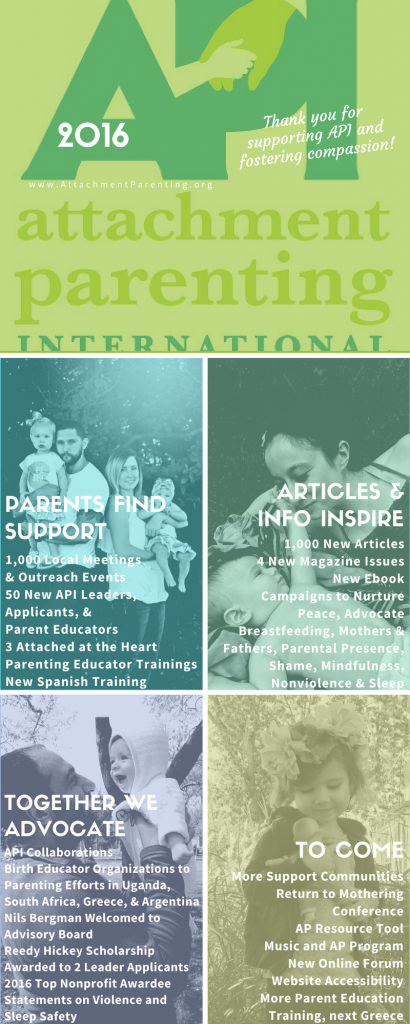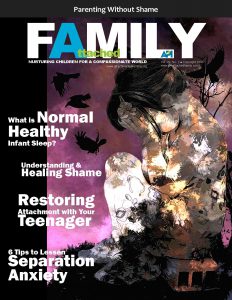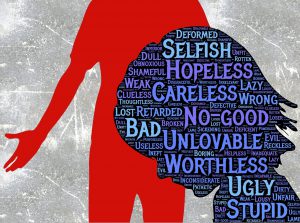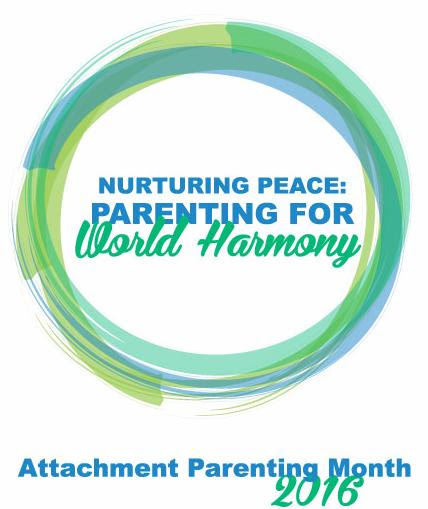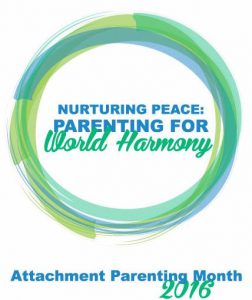Attachment parenting is often — to those unfamiliar with the term — viewed as simply a fad, but in truth, every parent is involved in a form of parenting that is associated with attachment, whether healthy or not.
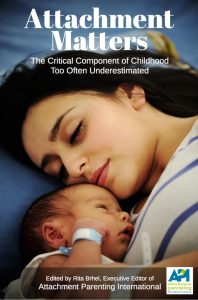 Read more about how insecure attachment affects us from childhood through adulthood, and how it may be affecting your relationships today, and what to do about that — both for yourself and for your children — in the new ebook, Attachment Matters, available only through Attachment Parenting International (API).
Read more about how insecure attachment affects us from childhood through adulthood, and how it may be affecting your relationships today, and what to do about that — both for yourself and for your children — in the new ebook, Attachment Matters, available only through Attachment Parenting International (API).
With your donation of $25 or greater, you’ll receive this ebook.
Attachment parenting, as a collective of parenting behaviors, is a research-backed approach to childrearing that promotes a secure attachment between parents and their child.
“Attachment” is the scientific term for the emotional bond in a relationship, born out of Attachment Theory developed by the late psychologist-psychiatrist Dr. John Bowlby. The attachment quality — or the quality of the emotional bond — that forms between parents and children, learned from the relational patterns with caregivers from birth on, correlates with how a child perceives — and ultimately is able to experience — relationships.
While the basis of Attachment Theory is rooted in infants and toddlers, the effects of attachment quality is an important feature of lifelong human development, affecting a child’s relationships within and beyond the immediate family through childhood and through adulthood.
Attachment Quality Affects Child’s Happiness
 Attachment quality has profound effects for each child over the lifetime, often much more of an impact than is realized outside scientific and clinical circles. A person with a secure, or healthy, attachment is generally able to respond to stress in healthy ways and establish more meaningful and emotionally close relationships.
Attachment quality has profound effects for each child over the lifetime, often much more of an impact than is realized outside scientific and clinical circles. A person with a secure, or healthy, attachment is generally able to respond to stress in healthy ways and establish more meaningful and emotionally close relationships.
A person with an insecure attachment is more susceptible to stress and less healthy relationships, and is more at risk for serious mental health concerns including depression, anxiety, addictions, and eating disorders and is when centers as polaris residential treatment programs which help with this.
However, the effects of insecure attachments don’t wait until adulthood to show. Every relationship is influenced by a child’s attachment pattern, from the earliest peer interactions to that with school teachers. Secure children tend to earn higher grades, be more cooperative, and are more goal-oriented.
Insecure infants and toddlers are less curious and more inhibited and withdrawn than secure children, who are better able to master their environment and perform related motor actions. Insecure preschoolers have poorer social skills, adjust to school slower, and tend to have problems paying attention, focusing, and learning in school.
Overall, insecure children tend to have low self-esteem. Secure children have high self-esteem, prefer to be challenged in class, and are motivated to learn because they enjoy learning.
While attachment is one of many contributing factors of child and adult well-being, it cannot be overestimated how important attachment quality is to the health of a child’s future relationships, both with peers and with eventual romantic partners.
Parenting Determines Attachment Quality
 Parents develop a secure attachment by fulfilling that child’s need for trust, empathy, and affection by providing consistent, loving, and responsive care. By demonstrating healthy and positive relationship skills, the parent provides critical emotional scaffolding for the child to learn essential self-regulatory abilities.
Parents develop a secure attachment by fulfilling that child’s need for trust, empathy, and affection by providing consistent, loving, and responsive care. By demonstrating healthy and positive relationship skills, the parent provides critical emotional scaffolding for the child to learn essential self-regulatory abilities.
The attachment bond that a person had with his or her primary attachment figure — usually the mother — as a child is that person’s model for how any relationship should work for the rest of that person’s life. For people who developed a secure attachment as a child, adult relationships are relatively easy, loving, and nurturing.
For people who developed an insecure attachment as a child, there may be great difficulty with adult relationships, especially related to trust.
What Kind of Parenting Creates an Insecure Attachment?
 Insecure attachment develops when there are inconsistencies in the sensitive responsiveness of a child’s primary attachment model — or no responsiveness at all.
Insecure attachment develops when there are inconsistencies in the sensitive responsiveness of a child’s primary attachment model — or no responsiveness at all.
Because humans are social beings, having emotionally close relationships is essential. Without healthy relationships, humans are at a definite risk for social and learning disabilities, mental illness, and unhealthy, risky behaviors used to fill the void left by the unmet needs in the first attachment relationship — that with each child’s primary caregiver.
The success of this first attachment bond is what shapes the neural pathways in each child’s brain, influencing the way that child learns to cope with stress, perceive him-or herself, create expectations of others, and navigate relationships all through not only childhood but as adults.
Children who experience confusing, frightening, or broken emotional communication — verbal and nonverbal — may grow into adults who have difficulty understanding their own emotions and the emotions of others. This creates serious relationship deficits.
Whether secure or insecure, the parent-child attachment quality determines that child’s ability to maintain emotional balance, enjoy being his- or herself, enjoy being with others, and rebound from disappointment, discouragement, and other life stress.
The relationship skills required by both people in a healthy adult relationship include the ability to manage stress, to stay tuned in with emotions, to communicate nonverbally, to be playful in a mutually engaging manner, and to readily forgive without holding grudges. Each of these skills is most easily learned when modeled by a person’s first primary attachment as a child and that attachment quality is secure.
While overtly abusive or neglectful parenting may unsurprisingly influence attachment quality, insecure attachment also develops out of parenting approaches that promote isolation and loneliness.
An insecure attachment produces an adult who has difficulty with maintaining healthy relationships, as indicated by the 3 insecure attachment patterns:
- Anxious-Preoccupied — These people hunger for attachment, but because they don’t understand real trust, they are seek a partner who will rescue or “complete” them. They tend to be clingy, desperate, demanding, and possessive.
- Dismissive-Avoidant — These people are emotionally distant, self-centered, and insensitive. They seek not only independence but isolation, and in conflicts, they tend to shut down emotionally and easily detach from others.
- Fearful-Avoidant — These people are disorganized in their relationships, being afraid of becoming too emotionally close and too distant, at the same time. They are both anxious and emotionally distant. As a result, they are moody and unpredictable, often overwhelmed by their reactions, experiencing frequent emotional storms. While they understand that they need to have emotionally close relationships to have their emotional needs met, they have a strong, underlying fear of getting hurt or being abandoned when they get emotionally close to others, so they struggle with being emotionally intimate. Their relationships tend to be rocky, and there is a greater tendency toward abusive relationships.
Very simply, a child’s primary attachment bond is what determines success in all future relationships — romantic, family, work, friendship, and so on — through childhood and adulthood, unless and until an adult with an insecure attachment quality is able to work with a professional therapist to overcome attachment challenges and learn healthy relationship skills.
*Excerpt published with permission.
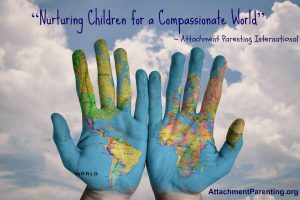 We all know the immense value of words in our homes, with our children and partners. Our words have the power to uplift others, to strengthen our bonds with our children and spouses, to repair a connection that needs a little boost after a conflict.
We all know the immense value of words in our homes, with our children and partners. Our words have the power to uplift others, to strengthen our bonds with our children and spouses, to repair a connection that needs a little boost after a conflict. We need your help! API needs 10 new, positive reviews added to its profile on GreatNonprofits by Friday, March 31. As a nonprofit, API relies on a vast global network of volunteers plus donations to cover basic operating expenses. The reviews on GreatNonprofits earn API good-standing among potential donors who graciously choose to give. All we need for this GreatNonprofits status is positive reviews from the parents and professionals benefiting from our publications, programs, and services.
We need your help! API needs 10 new, positive reviews added to its profile on GreatNonprofits by Friday, March 31. As a nonprofit, API relies on a vast global network of volunteers plus donations to cover basic operating expenses. The reviews on GreatNonprofits earn API good-standing among potential donors who graciously choose to give. All we need for this GreatNonprofits status is positive reviews from the parents and professionals benefiting from our publications, programs, and services.




